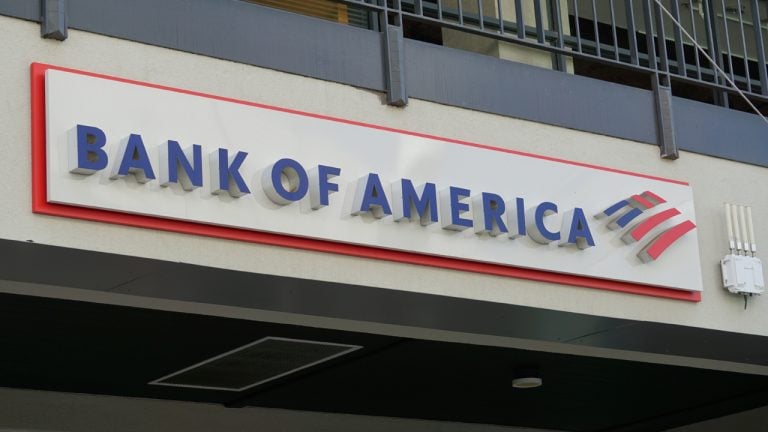The High Rate Environment — Bank of America Faces Paper Losses Exceeding $100 Billion
Publikováno: 4.7.2023
 Following the aftermath of the United States’ three major bank collapses, several market observers argue that the banking crisis in the country persists. Bank of America has recently garnered significant attention, with the Federal Deposit Insurance Corporation (FDIC) reporting that the financial behemoth incurred paper losses exceeding $100 billion by the close of the first […]
Following the aftermath of the United States’ three major bank collapses, several market observers argue that the banking crisis in the country persists. Bank of America has recently garnered significant attention, with the Federal Deposit Insurance Corporation (FDIC) reporting that the financial behemoth incurred paper losses exceeding $100 billion by the close of the first […]

Following the aftermath of the United States’ three major bank collapses, several market observers argue that the banking crisis in the country persists. Bank of America has recently garnered significant attention, with the Federal Deposit Insurance Corporation (FDIC) reporting that the financial behemoth incurred paper losses exceeding $100 billion by the close of the first quarter.
Unrealized Losses Haunt Bank of America: $109 Billion and Counting
The banking industry remains under scrutiny as U.S. banks grapple with hundreds of billions in unrealized losses, with some estimates reaching as high as $1.7 trillion. Attention has particularly turned to Bank of America (NYSE: BAC), the second-largest financial institution in the United States boasting an estimated balance sheet of around $2.39 trillion.
Recently, the FDIC released data indicating that Bank of America is confronting a loss of approximately $109 billion. During the Covid-19 pandemic, when interest rates were low and funds were readily accessible, Bank of America seemingly made a substantial investment in assets such as U.S. government bonds.
At that point, the bank, along with many others, deemed these bonds as safe and risk-free investments, despite their comparatively modest yields. However, the situation altered as inflation surged and the approach to economic management shifted.
The U.S. Federal Reserve transitioned from accommodating monetary policies to quantitative tightening, implementing the highest federal funds rate in 16 years. According to FDIC data, as reported by the Financial Times (FT), Bank of America’s losses reveal that the bank holds a fifth of the $515 billion in unrealized losses held by the nation’s banks at the end of Q1.
Dick Bove, the chief strategist at boutique broker Odeon Capital, commented to FT that “[Bank of America CEO] Brian Moynihan has done a phenomenal job in handling the bank’s operations, but if you look at the bank’s balance sheet, it’s a mess.” Although Bank of America’s stock has seen a 3% increase against the U.S. dollar in the past 30 days, statistics spanning six months show a decline of over 13% in the bank’s shares.
Financial institutions, such as Bank of America, have incurred unrealized losses that are much greater than the record losses recorded in 2008. Troubled balance sheets have been the driving force behind the financial turmoil experienced by Silicon Valley Bank, Signature Bank, and First Republic.
Multiple market observers anticipate further bank failures, echoing the sentiments of Robert Kiyosaki, the author of the best-selling book “Rich Dad Poor Dad.” In April, Jamie Dimon, the head of JPMorgan Chase, asserted that the consequences of the U.S. banking crisis will reverberate “for years to come.”
What do you think the long-term implications of Bank of America’s $109 billion in paper losses will be for the U.S. banking industry and the overall economy? Do you think the high rate environment will lead to more losses? Share your thoughts and opinions about this subject in the comments section below.